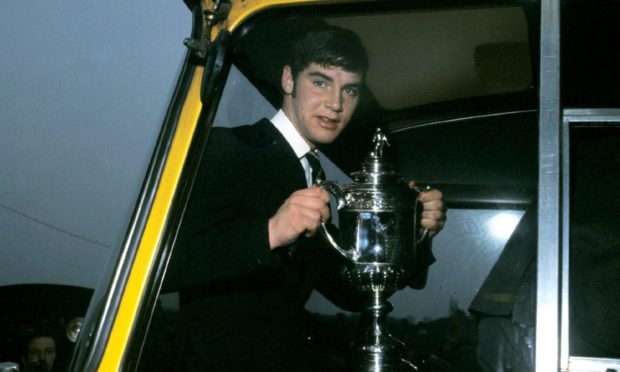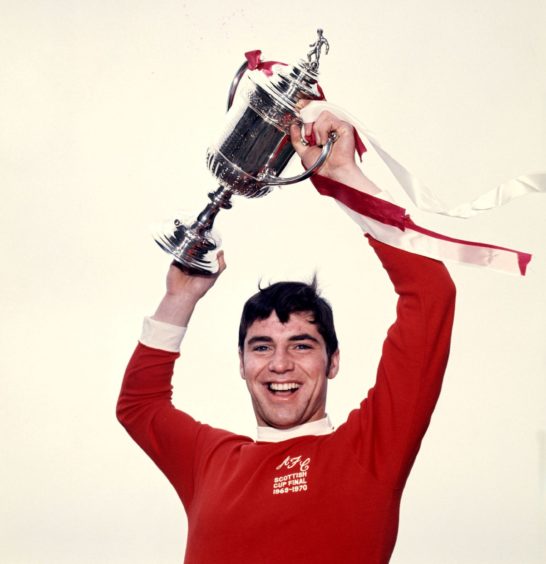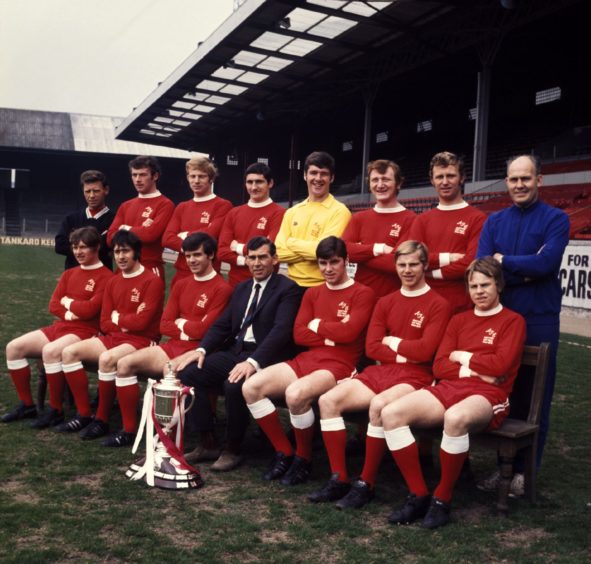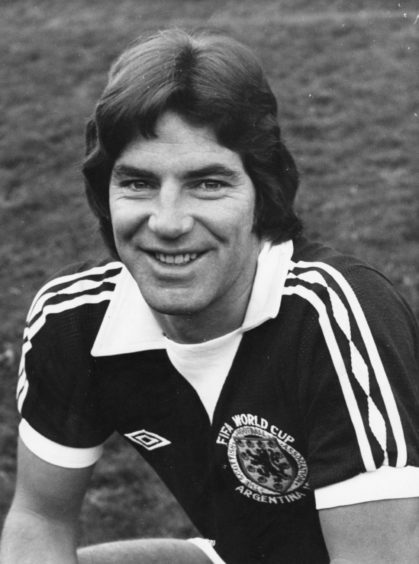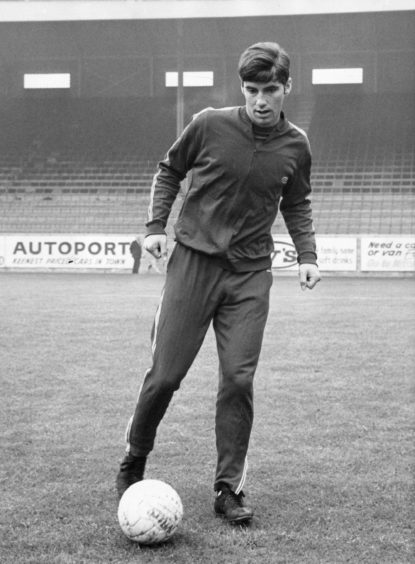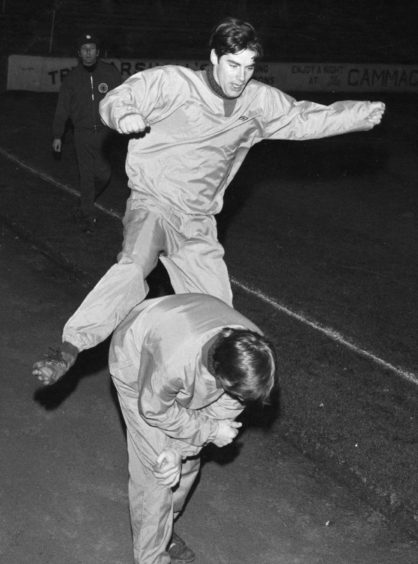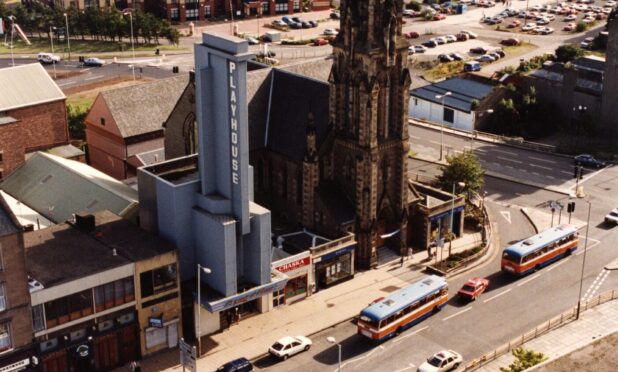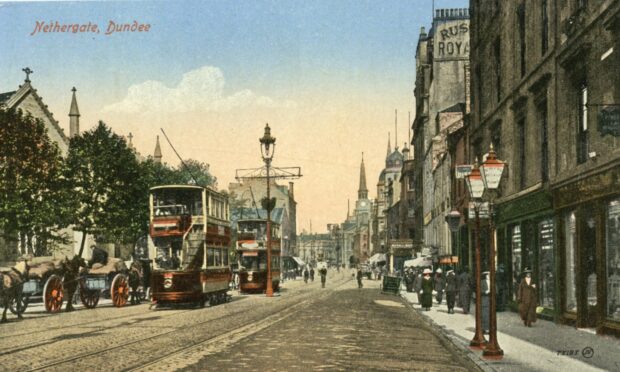Not too many players have a CV featuring Banks O’Dee, Aberdeen, the Washington Whips and Manchester United, but there again, not too many players had the pedigree or class of Martin McLean Buchan.
When Dons supporters sit down and talk about the best talent to emerge from the city, Denis Law is usually at the top of the list – but while he was unquestionably a stellar performer, the Lawman left the Granite City without ever gracing the Pittodrie turf.
Buchan, on the other hand, was one of the leading figures in the emergence of the north-east club as a genuine force on the Scottish circuit in the late 1960s and early 1970s and his contribution to the club’s success in winning the 1970 Scottish Cup can hardly be overstated.
At just 21, he was already a consummate professional, somebody whose career was marked by constant improvement en-route to the stratosphere.
And when he lifted the trophy in front of the massed ranks of Aberden aficionados at Hampden after his side’s epic 3-1 success against Jock Stein’s otherwise all-conquering Celtic, the beatific expression on his face seemed to say: “This is only the start.”
Football was in Martin Buchan’s DNA
Some families are destined to excel in the football realm and the Buchan family were among their number.
Long before Martin junior was lacing up his boots, making his debut against Portugal during a 2-1 win 50 years ago, appearing at two World Cups in Germany in 1974 and Argentina in 1978 and gaining rapturous reviews from the Manchester United faithful even in difficult times at Old Trafford, his father of the same name was among those who were signed up by Dave Halliday, the man who eventually steered his charges to their first-ever Scottish Championship title in 1955.
As Jack Webster, journalist, author and writer of the official centenary history of the Dons recalled: “Martin Buchan [snr] was as good a ball player as Aberdeen junior football had seen in years, but he never commanded the place his talents merited.
“However, if the beautifully balanced Buchan didn’t reach his potential at Pittodrie (he later gave 12 distinguished years to Buckie Thistle), he made another very significant contribution to the fortunes of Aberdeen FC.
“Within a few years, he had a son, who would grow up with his father’s instincts, follow his route to Pittodrie, and become the youngest-ever skipper to lift the Scottish Cup.”
And he was joined, both at Aberdeen and at Manchester United by his younger brother, George, as if to accentuate the impact of this special family affair.
Getting Whipped into shape in the United States
The teenage Buchan was among those from the north-east club who travelled to America in 1967 and became part of the side known as the Washington Whips.
It was a rapid learning experience for the youngster, who responded magnificently to the challenge as he and his teammates, managed superbly by Eddie Turnbull, joined the likes of Hibs, Dundee United, Stoke City and Wolves to become the adopted teams of a variety of US cities, who played out a contest in two sections.
Aberdeen, in their temporary guise, did Washington proud and were the opposite of whipping boys. They triumphed in the Eastern section of the competition and only lost to Wolves after a hard-fought and controversial final which went to extra time before Ally Shewan put through his own goal [as the match finished 6-5!].
Buchan, though, was in his element and displayed imperious form at such venues as the Los Angeles Coliseum and the Houston Astrodome. Turnbull, by no means an easy fellow to impress, said later that he realised this was a superstar in the making.
And the appreciation between these two contrasting characters was mutual.
Eddie Turnbull was the best in Buchan’s eyes
At this early stage of his career, Buchan soaked up knowledge, tactics and technical tips like human blotting paper, inspired by the man at the helm.
In fact, he regarded Turnbull in almost messianic terms and believed he would not have reached the heights he did without the assistance of the gruff gaffer who never used one expletive where 20 would fill up a conversation.
As Buchan said: “As a football coach, Eddie was light years ahead of anybody else I worked with at club or international level in my career, which spanned 19 years.
“As soon as he joined Aberdeen, he embarked upon a youth policy whereby he took young hopefuls, many of them local lads like me, and worked us very hard.
“He gave us the most wonderful education in the game and he made men of us.
Turnbull helped turn bullish Buchan into Mr Reliable
“He realised, of course, that he needed experienced players to help bring on the youngsters, but even they became better under his guidance.
“When I eventually left Aberdeen to join Manchester United [in February 1972], I felt that I could have gone anywhere in the world and played in any system, thanks to the things which he taught me about the game.”
“Eddie really did have that much of an influence on my development and I will be forever grateful to him for all the things he taught me.”
Many of these attributes were soon in evidence at Old Trafford where Buchan was regarded as “Mr Reliable” by his managers and the fans of the Red Devils, even as others in the ranks flitted in and out of the picture.
And although he was unable to prevent the Manchester giants from being relegated at the end of the 1973-74 campaign, his first as captain after the retirement of Bobby Charlton, none of the blame was attached to him.
On the contrary, the local newspapers concluded that if everybody else in the side had performed with the same level of class and consistency as the ubiquitous Buchan, they would have nowhere near the drop zone in the first place.
There were glorious times for Buchan at United
Buchan was never a man to settle for second best and, while being a courteous and decent individual, wasn’t remotely interested in tolerating mediocrity.
That much was obvious when he powered United back to where he believed they belonged – in the top tier of English football – at the first time of asking.
And he was similarly driven in his efforts to collect more silverware at a time when the likes of Liverpool, Leeds United and Arsenal were all vying for supremacy.
Players from the period recall the Scot being a calming influence on the more vociferous members of his squad.
Yet he also adhered to the maxim: “Respect me and I’ll respect you back.”
Those who overstepped the mark were dealt with quickly.
Buchan was well ahead of Strachan in the gag stakes
That included one newspaper hack who confronted him after the Manchester United versus Coventry City match at the old Highfield Road at the start of the 1976-77 season.
Buchan recalled: “I was last out of the bath because I always enjoyed a good soak and, by the time I got to the players’ lounge which was right at the top of the stadium, I was in need of a refreshment.
“Anyway, this journalist – whom I didn’t know – put his hand on my chest to stop me. ‘A quick word, Martin?’
“‘Velocity’, I told him and because he had been so rude, I added: ‘Eff off’.”
Buchan, an aficionado of the legendary Scottish comedian Chic Murray, doesn’t mind that this quote is usually attributed to another Aberdeen and Manchester United icon Gordon Strachan in most football anthologies.
And why should he?
After all, he has a wealth of his own stories dating back to the days in the early 1960s when he won a bursary to Robert Gordon’s College in Aberdeen and was made to stand up at assembly while his headmaster told the gathering: “This is the boy who won’t play rugby for the school.”
That’s Martin Buchan for you: a rugged individualist who created history in 1977.
Notching up an unprecedented Cup double
Some people are surprised that a player of Buchan’s class “only” accumulated 34 caps – the same number as Jim Baxter – although that’s significantly more than amassed by compatriots such as Jimmy Johnstone and Davie Cooper.
But he made history wherever he ventured and nowhere more so than when he led United to a 2-1 victory in the 1977 FA Cup final against favourites Liverpool.
It was a dramatic contest, one which ebbed and flowed, and where passions ran high, but Buchan was cool as Antarctica while others seethed and simmered around him – and when the tussle ended, he became the first-ever player to have captained clubs to victory in both the Scottish and the FA Cups. That is definitely one for the chronicles.
Not that Buchan seems unduly fazed by how he will be remembered.
A man who loved football and his own journey
His success and his enduring appeal is largely the product of the myriad lessons which he received from the tough-as-teak Turnbull, who died in 2011.
There were no half measures with him.
The message was: “It’s my way or the highway.”
Buchan recalled: “Eddie had served on the Atlantic Convoys; he was a hard, hard man and he made it clear he had come to sort out Aberdeen.
“The club was a holiday camp for older players from the central belt. But within the space of two months, he got rid of 17 players. One guy was sent from the training field because he couldn’t take a corner.
When he came out of the shower, Eddie was waiting for him. ‘The secretary’s got your wages,’ he said. ‘I don’t want to see you again.”
Thankfully, he took a totally different approach with Martin Buchan.
